May’s focus on UK-Africa ties long overdue
August 31, 2018—Prime Minister Theresa May’s trip to South Africa, Nigeria and Kenya this week is an important signal of renewed British political and economic interest in Africa writes Dr. Alex Vines OBE and Elizabeth Donnelly.
It was long overdue: a British prime minister has not visited Africa since 2013, and there has been a comparative decline in the UK’s visibility in many parts of the continent over the last decade, just as many other states, including France, Turkey, China and Japan, have been upgrading their Africa engagement. A planned trip by David Cameron was cancelled in 2016 with just five days’ notice because of the Brexit referendum and its results.
Theresa May understands that Brexit compels her to focus on neglected partnerships and new alliances – a point undoubtedly pressed in her interactions with African leaders at the Commonwealth Heads of Government Summit in April. (Nineteen of the 53 Commonwealth member states are African.)
African influence in global affairs should not be underestimated – where African governments can achieve a common position, they can be a powerful force, as African support for the Paris climate change agreement showed. Renewed relations with African states can be an important part of the UK’s efforts to shore up its international relevance and influence after it leaves the European Union.
Renewed engagement
Though this is the highest profile visit, it is just the latest of a number of significant engagements with Africa under May’s leadership. She committed to hold the May 2017 Somalia Conference in London; her chancellor, Phillip Hammond, visited South Africa in late 2016; and her secretary of state for international trade, Liam Fox, visited Ethiopia, South Africa, Mozambique and Uganda in 2017.
Former foreign secretary Boris Johnson undertook more visits to Africa than any senior UK government official in many years, visiting Ethiopia, Gambia, Kenya, Liberia, Nigeria, Uganda and Somalia in 2017 as well as attending the Africa–EU summit in Côte d’Ivoire. Former international development secretary Priti Patel and her successor Penny Mordaunt have made a number of visits to African countries over the past two years as well.
Given that policy bandwidth in London is overwhelmed by Brexit, it is also significant the UK’s National Security Council approved a new government Africa strategy in early 2018.
As part of this, the UK network in Africa will be expanded: high commissions will re-open in Lesotho and Eswatini (formerly Swaziland), the first ever resident British ambassador has been appointed to Mauritania and the first British diplomatic office has opened in Chad. This is being backed up with a cash injection of £50 million redeployed from the foreign aid budget.
There has also been a pivot of strategic focus towards the western Sahel region. The reasons are complex: partly about migration and countering violent extremism, this shift is also about relationships with European partners – notably France, but also the wider EU – demonstrating that Britain, post-Brexit, is a dependable and invaluable security partner.
Earlier this year the UK committed three RAF Chinook helicopters to assist the French military in Mali, but the new strategy will emphasize aid: British expertise developed in Syria and Afghanistan will be used to support development efforts in the high-risk conflict zones of the Sahel.
The UK offer
Kenya, Nigeria and South Africa were obvious destinations. They are priorities for British foreign policy and key members of the Commonwealth.
The UK is an important development and security partner of Nigeria and Kenya. Britain conducts military training in Kenya, with six infantry battalions per year carrying out annual exercises, and in 2016 pledged £40 million of counter-terrorism and counter-extremism support to Nigeria to combat Boko Haram. Nigeria is among the top five recipients of British aid globally, receiving the second-highest assistance in Africa after Ethiopia, and the UK is Kenya’s largest travel market, with over 168,000 British visitors in 2017.
Trade will be a further preoccupation. Nigeria and South Africa are the UK’s biggest trading partners in Africa – with trade worth $3.3 billion and $8.7 billion respectively in 2016 – and are the continent’s two largest economies; Kenya ranks ninth. All three exert significant economic influence across their sub-regions and are key gateways for investment into the rest of the continent.
At a time when perceived risks are deterring global investors in Africa, the UK could seek to increase its financial services offer, as well as boosting its trade facilitation efforts, aid for trade and project finance. The Commonwealth Development Council is the largest single investor in private equity funds in Africa, and the UK retains a reputation for pushing the envelope of smart development assistance. Alongside its security partnerships, and historical ties, the UK offer could carry significant weight.
The obstacles
But while Theresa May’s Africa trip is an important political statement of intent, the UK is not alone in seeking to build partnerships in Africa. The presidents of France and Turkey, for example, have made far more visits to Africa since 2010, and even geographically distant Japan has managed more than British heads of government.
There are further obstacles. Among the biggest impediments to improving bilateral relations is the UK’s visa regime – a product, in part, of fears over illegal migration that are all-too familiar to the prime minister from her long tenure as home secretary, where she presided over visa policy.
The difficulties Africans – of all backgrounds – face in obtaining visas hinders efforts of British diplomats, and frustrates business, the arts and culture. Many Africans turn elsewhere because of UK visa bureaucracy. President Uhuru Kenyatta of Kenya and other African leaders have already raised the issue with the prime minister and other senior British officials. Making UK visas easier to obtain or extending visa exemptions (which currently only apply to Namibia and Botswana) would be transformative.
So the road to renewed partnership with Africa will not be smooth – and the UK’s effort to reboot its Africa engagement may in any case fall victim to the vagaries of domestic politics, as it has in previous years. But, with strategic thought by UK government agencies, ministerial prioritization, long-term commitment and expertise, the potential rewards are considerable.
Dr. Alex Vines OBE is the Research Director, Area Studies and International Law, Head of Africa Programme at the Royal Institute of International Affairs (Chatham House) London
Elizabeth Donnelly is the Deputy Head, Africa Programme (Chatham House).

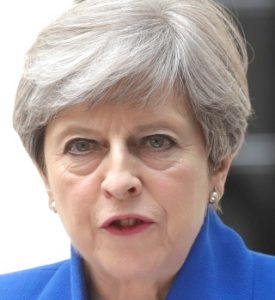

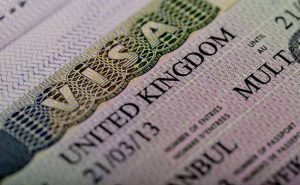
 AfDB puts up nearly $700m for Burundi-Tanzania SGR link
AfDB puts up nearly $700m for Burundi-Tanzania SGR link
 Bank of Uganda keeps base rate at 9.5% to support surge in GDP growth
Bank of Uganda keeps base rate at 9.5% to support surge in GDP growth
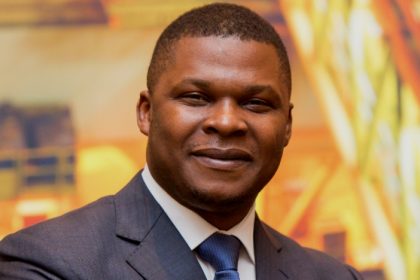 Africans must resist being bulldozed in energy transition timetable debate
Africans must resist being bulldozed in energy transition timetable debate
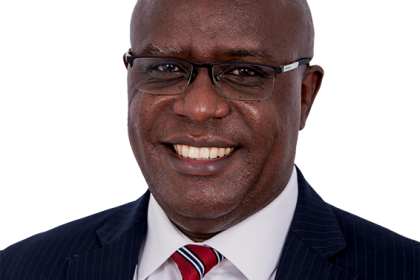 Standard Bank Group appoints new Chief Executive for Uganda Holdings
Standard Bank Group appoints new Chief Executive for Uganda Holdings
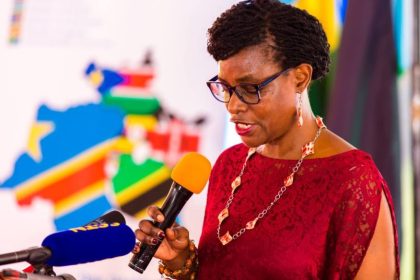 TradeMark Africa introduces new App to limit EAC trade barriers
TradeMark Africa introduces new App to limit EAC trade barriers
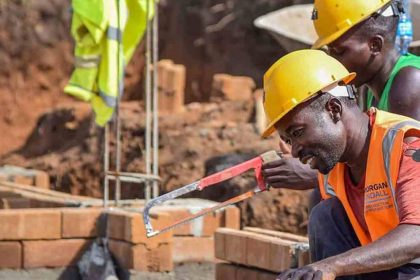 Employer hiring up during November as Stanbic PMI rises to 53.4
Employer hiring up during November as Stanbic PMI rises to 53.4
